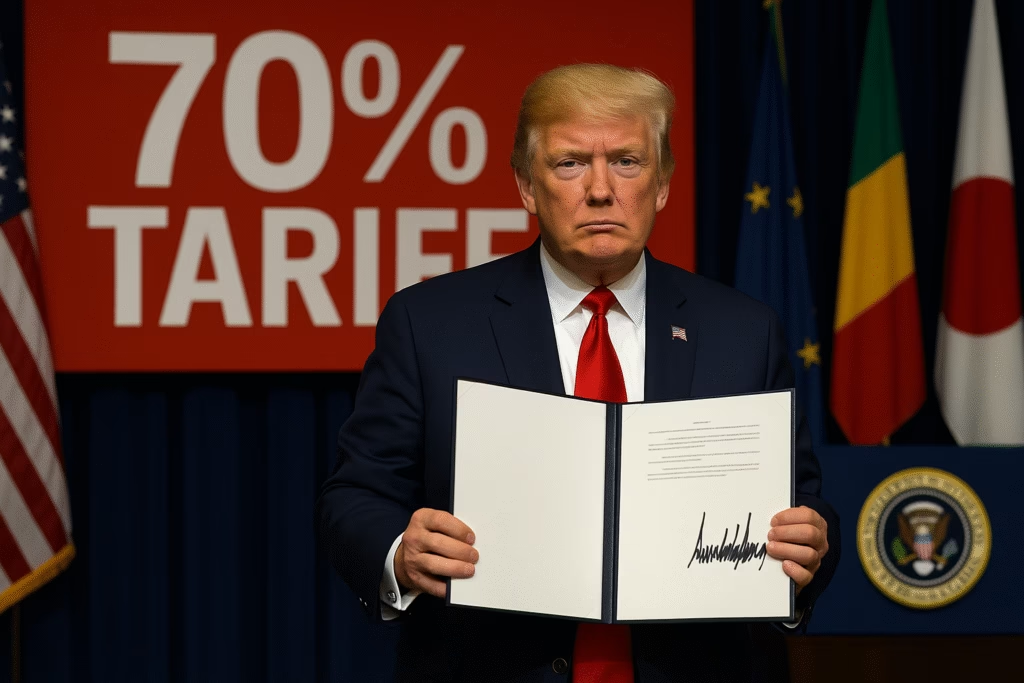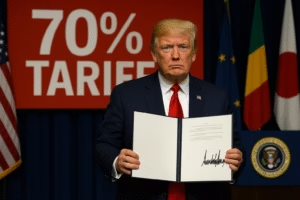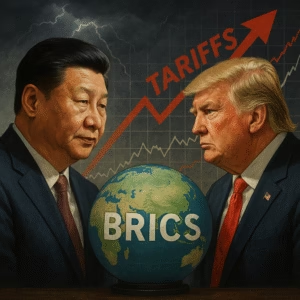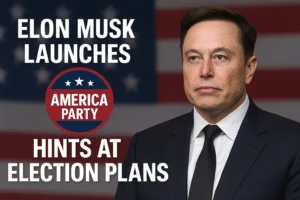
Trump 70% Tariff
Trump 70% Tariff Shock: Global Markets Tumble as White House Triggers Trade Storm

Trump 70% Tariff plans were officially unveiled on July 4, shaking the global economic order. Starting July 5, the White House will dispatch notices to trade partners outlining the new tariff rates. The bold move to raise duties as high as 70% could trigger far-reaching consequences for businesses, consumers, and international relations.
White House to Issue Tariff Notices Starting July 5
President Trump has ordered U.S. trade officials to begin sending formal letters to at least 18 countries starting July 5, each outlining new import tariffs between 10% and 70%. These duties will be enforced beginning August 1 if bilateral agreements are not signed before the July 9 deadline.
“It’s about putting America first and correcting decades of trade abuse,” Trump said in a televised statement. The Trump 70% Tariff move follows the end of a 90-day pause in negotiations with trading partners such as the EU, Japan, South Korea, and China.
Markets React: Red Everywhere
Global financial markets responded swiftly and negatively. South Korea’s KOSPI fell 2%, while Germany’s DAX and France’s CAC‑40 dropped by over 0.6%. U.S. indices like the NASDAQ and Dow Jones showed increased volatility amid investor concerns over rising costs and retaliatory actions.
“The Trump 70% Tariff signal is a game changer,” said an economist from the International Monetary Fund (IMF). “We are entering a phase where trade war risks are no longer speculative—they’re imminent.”
Tariff Details: What Gets Hit Hard
- Auto parts and finished vehicles
- Consumer electronics
- Textiles and garments
- Pharmaceutical imports from China and Europe
The steepest tariffs will target countries without a trade deal in place by July 9. So far, only the UK and Vietnam have secured exemptions. Others—like Japan, Canada, and the EU—are in last-minute talks.
Impact on U.S. Economy
A JPMorgan analysis estimates U.S. mid-sized businesses could face over $82 billion in new costs. This could lead to layoffs, supply chain disruptions, or price increases across sectors.
Retailers and manufacturers are especially vulnerable. “We’re already adjusting contracts and raising prices,” said a Walmart procurement executive in an interview with Wall Street Journal.
India’s Position on Trump 70% Tariff Policy
India’s Ministry of Commerce has not yet received formal communication but acknowledged the threat to textile and pharmaceutical exports. Indian officials have expressed interest in bilateral talks to avoid maximum tariff exposure.
China & EU: On the Brink of Retaliation
China’s foreign ministry warned of “firm countermeasures” if its exports are hit. EU Trade Commissioner Simone Bertolini stated that “Europe will defend its economic interests and retaliate if necessary.”
Negotiations are ongoing, with China reportedly close to agreeing on a framework deal. Meanwhile, EU officials are expected to hold emergency meetings this weekend in Brussels.
What Businesses Should Do Immediately
- Audit supply chains and identify tariff-exposed products
- Secure inventory ahead of August 1 deadline
- Engage in government or chamber-level dialogue
- Consider shifting sourcing to tariff-exempt nations
How Should Investors and Consumers Prepare?
In light of the Trump 70% Tariff announcement, financial experts are advising both investors and average consumers to remain vigilant. Investors should diversify portfolios to include tariff-insulated sectors such as domestic manufacturing, green energy, and healthcare. Consumers, on the other hand, should anticipate price hikes in imported electronics, vehicles, and everyday goods. “Avoid large purchases that depend on imported components until price stability returns,” suggested Rina Mehta, senior economist at TradeGuard India. Credit monitoring firms have also warned that increased inflation could affect household budgets and loan EMIs. Proactive financial planning is now essential amid the growing global uncertainty.
Conclusion: A Defining Moment in Trade History
The Trump 70% Tariff announcement is more than a policy—it’s a political earthquake. Whether this strategy yields better deals or results in economic fragmentation depends on how global powers respond in the days ahead.
One thing is certain: the world is watching, businesses are recalculating, and a new era of trade tensions has officially begun.
Follow TrendyIndiaNews.com for daily updates on international policy, business, and economic reactions.
About The Author
Discover more from Trendy India News
Subscribe to get the latest posts sent to your email.






1 thought on “Trump 70% Tariff Shock: Global Markets Tumble as White House Triggers Trade Storm”